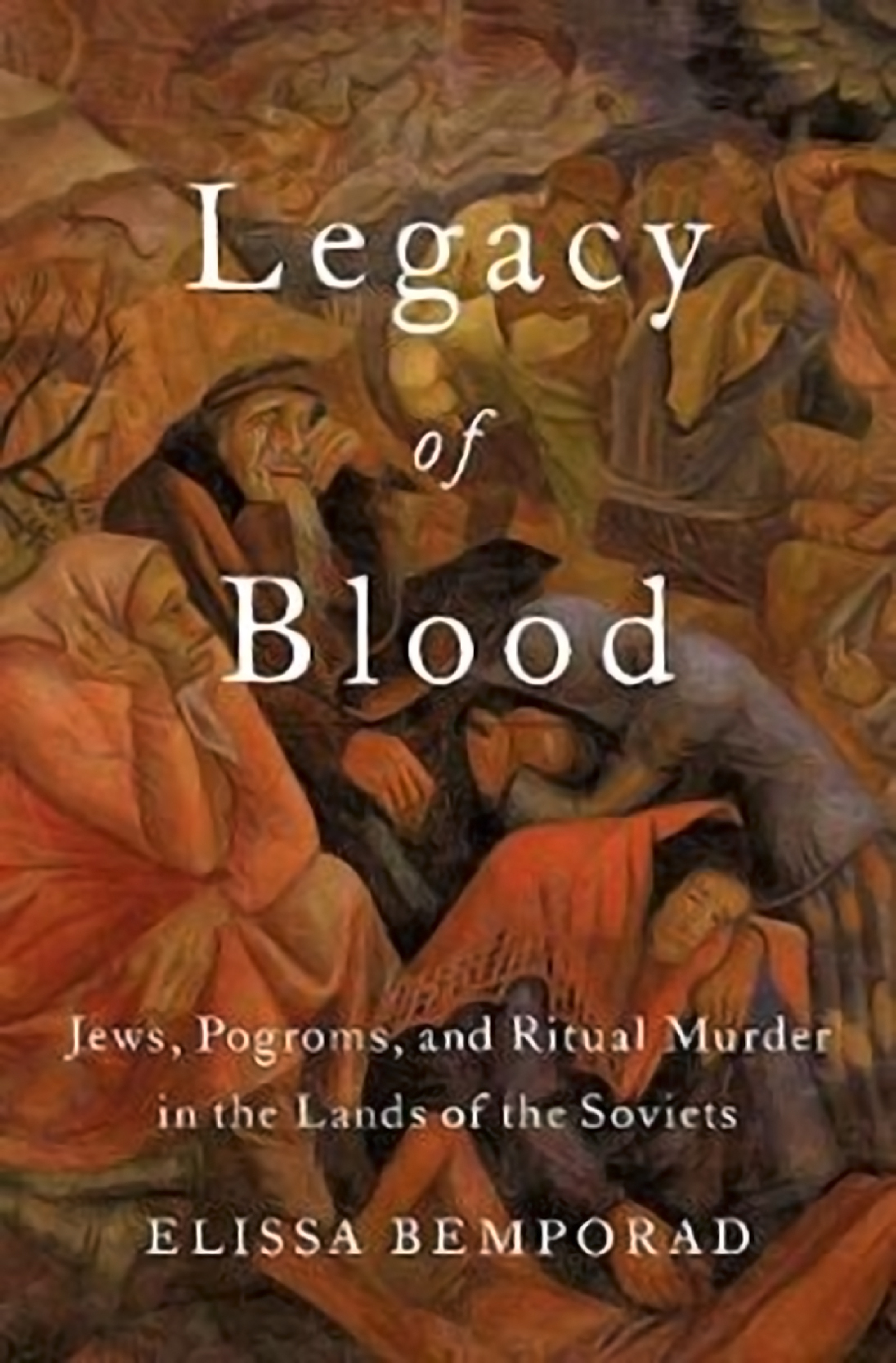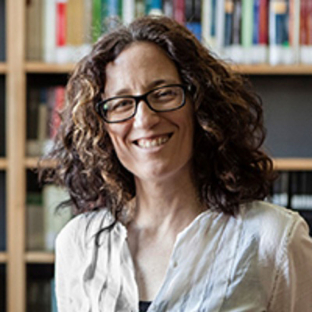Legacy of Blood: Jews, Pogroms, and Ritual Murder in the Lands of the Soviets

|
Book Launch
Admission: Free This event has been cancelled. |
The most extreme legacies of tsarist antisemitism were pogroms and blood libels. These events were central to the Jewish experience in late tsarist Russia, the only country with widespread anti-Jewish violence in the early twentieth century. After the Soviets came to power, they claimed that they had eliminated both these phenomena. In her new revelatory book, Legacy of Blood: Jews, Pogroms, and Ritual Murder in the Lands of the Soviets, Elissa Bemporad demonstrates that the Soviets’ claim was part propaganda, part reality.
In the forty-year-span from the Bolshevik Revolution to the early years of Krushchev, a living generation of Jews and non-Jews alike vividly remembered the violence of the prerevolutionary years, including the Beilis Affair, and the horrific pogroms of the Russian civil war of 1917-1921. Contrary to official Soviet claims, there were numerous blood libel accusations against Jews in the USSR, and the response to them by local authorities ranged from indifference to endorsement to fierce condemnation. By tracing the "afterlife" of pogroms and blood libels in the USSR, Legacy of Blood sheds light on the broader question of the changing position of Jews in Soviet society. In doing so, Bemporad tells the story of the ever-changing and at times ambivalent relationship between the Soviet state and the Jewish minority group.
Join us for the launch of this new book. The evening will include a presentation from Bemporad on her research followed by a conversation between Bemporad and scholar Hillel Kieval, led by YIVO’s Executive Director Jonathan Brent.
Buy the book here.
About the Speakers

Elissa Bemporad is the author of Becoming Soviet Jews: The Bolshevik Experiment in Minsk (Indiana University Press, 2013), winner of the National Jewish Book Award and of the Fraenkel Prize in Contemporary History, and finalist of the Jordan Schnitzer Prize in Modern Jewish History. The Russian edition was published with ROSSPEN, in the History of Stalinism Series. Her new book, entitled Legacy of Blood: Jews, Pogroms, and Ritual Murder in the Lands of the Soviets, will be published with Oxford University Press in fall 2019. Elissa is also the co-editor of two volumes: Women and Genocide: Survivors, Victims, Perpetrators (Indiana University Press, 2018, with Joyce Warren), which is a collection of studies on the roles played by women in different genocidal contexts during the twentieth century; and Pogroms: A Documentary History of Anti-Jewish Violence (forthcoming with Oxford University Press, with Gene Avrutin), which is an essential source reader for anyone teaching in the fields of modern Jewish history and Jewish studies. She has recently been a recipient of an NEH Fellowship and a Fellowship at the Center for Advanced Holocaust Studies at the United States Holocaust Memorial Museum in Washington DC. Elissa's projects in progress include research for a biography of Ester Frumkin, the most prominent Jewish female political activist and public figure in late Imperial Russia and in the early Soviet Union; and the first volume of the six-volume history entitled A Comprehensive History of the Jews in the Soviet Union, which will be published with NYU Press.

Hillel J. Kieval is the Gloria M. Goldstein Professor of Jewish History and Thought at Washington University in St. Louis. A historian of Jewish culture and society in Central and Eastern Europe in the 19th and 20th centuries, his research interests range widely: from pathways of Jewish acculturation and integration to the impact of nationalism and ethnic conflict on modern Jewish identities; from cross-cultural conflicts and misunderstandings to the discursive practices of modern antisemitism; and from theories of Jewish citizenship to the phenomenology of "ritual murder" trials at the turn of the 20th century. Among his numerous books and articles are The Making of Czech Jewry: National Conflict and Jewish Society in Bohemia, 1870-1918 (1988); Languages of Community: The Jewish Experience in the Czech Lands (2000); and, forthcoming, Blood Inscriptions: Science, Modernity, and Ritual Murder in Fin de Siècle Europe. Educated at Harvard University, Hillel Kieval has taught previously at Brandeis University and the University of Washington. He has also held visiting appointments at the Hebrew University of Jerusalem, the Center for Advanced Judaic Studies at Penn, the École des Hautes Études en Sciences Sociales in Paris, the University of Vilnius, and the Universidad Hebraica in Mexico City.




